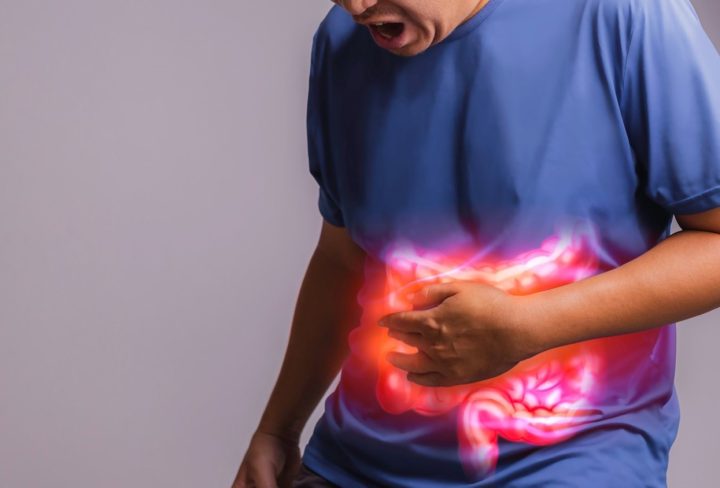GERD is a digestive condition in which the stomach contents leak backward from the stomach into the esophagus (food pipe).
Food usually travels from the mouth to the stomach through your food pipe. GERD can irritate the food pipe and cause heartburn and other symptoms.
Symptoms:
- A burning sensation in your chest (heartburn) after eating that is worse at night or while lying down
- Backwash (regurgitation) of food or sour liquid into the throat
- Upper abdominal or chest pain
- Trouble swallowing (dysphagia)
- The sensation of a hard lump in the throat
Causes:
GERD is caused by frequent acid reflux from the stomach.
When you swallow the food particles, a circular band of muscle around the bottom of the esophagus (lower esophageal sphincter) or LES relaxes to let the food and liquid to flow into your stomach. Then the sphincter closes again.
If the sphincter does not relax as normally it does, or it weakens, stomach acid can flow reversely into your food pipe. This backwash of acid irritates the lining of the food pipe, irritating the esophageal lining.
Risk Factors:
Factors that increase the risk of GERD are:
- Obesity
- Bulging of the top of the stomach (hiatal hernia)
- Being pregnant
- Delayed stomach emptying
- Certain medications (aspirin)
- Smoking
- Eating heavy foods late at night
- Drinking alcohol in more amounts
Diagnosis:
To confirm the diagnosis, your doctor would recommend some tests like:
Upper endoscopy: This helps your doctor detect any inflammation of the esophagus (food pipe)
Ambulatory acid (pH) probe test: This test checks for how long and when the backflow of acids occurring
X-ray of the upper digestive system: This test allows us to check for the outline of the esophagus and stomach
Esophageal manometry: This test measures the rhythmic muscle contractions in the esophagus when the food is being swallowed
Transnasal esophagoscopy: This test is performed to look for any damage in your esophagus
Treatment:
Your doctor would ask you to use the below medications:
- Antacids: Helps neutralize the stomach acids
- H-2 blockers: Helps to reduce the production of acid in the stomach
- Proton pump inhibitors: Helps reduce acid production and heal the esophagus
Surgical management of GERD:
- Fundoplication: It is a minimally invasive procedure. This helps make the loosened sphincter tight and prevents the reflux of acids.
- LINX device: A ring of small magnetic beads are wrapped around the junction of the stomach and esophagus. The magnetic attraction between the beads helps keep the junction closed to refluxing acid
- Transoral incisionless fundoplication (TIF): This is a new procedure involves tightening the (LES) lower esophageal sphincter
Lifestyle Modifications:
Here are some simple measures that help reduce the frequency of acid reflux:
- Maintaining a healthy weight
- Quitting tobacco consumption
- Elevating your head while sleeping
- Sleeping on your left side
- Eating food slowly and chewing effectively
- Avoiding foods and drinks that provoke reflux like alcohol, caffeine, fatty foods



